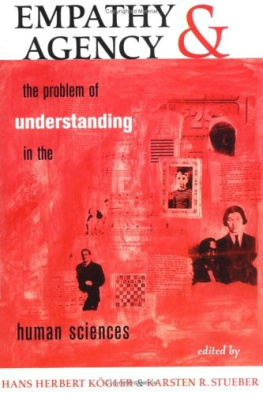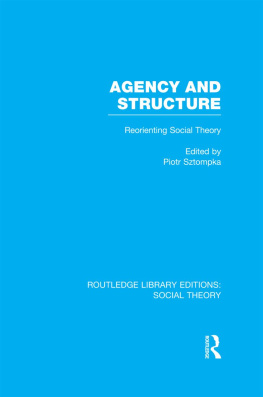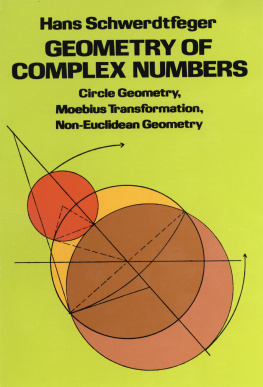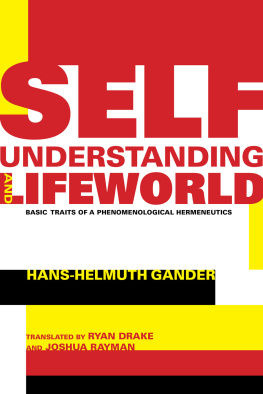Empathy and Agency
The Problem of Understanding in the Human Sciences
edited by Hans Herbert Kgler University of North Florida Karsten R. Stueber College of the Holy Cross
WESTVIEW PRESS A Member of the Perseus Books Group
-iii-
All rights reserved. Printed in the United States of America. No part of this publication may be reproduced or transmitted in any form or by any means, electronic or mechanical, including photocopy, recording, or any information storage and retrieval system, without permission in writing from the publisher.
Copyright 2000 by Westview Press, A Member of the Perseus Books Group
Published in 2000 in the United States of America by Westview Press, 5500 Central Avenue, Boulder, Colorado 80301-2877, and in the United Kingdom by Westview Press, 12 Hid's Copse Road, Cumnor Hill, Oxford OX2 9JJ
Find us on the World Wide Web at www.westviewpress.com
Library of Congress Cataloging-in-Publication Data Empathy and agency: the problem of understanding in the human sciences / edited by Hans Herbert Kgler and Karsten R. Stueber.
p. cm.
Includes bibliographical references and index.
ISBN 0-8133-9120-2 (hc). -- ISBN 0-8133-9119-9 (pb)
1. Psychology -- Philosophy. 2. Science and psychology. 3. Empathy. I. Kgler, Hans Herbert, 1960- . II. Stueber, Karsten R. BF64.E67 2000 128'.4 -- dc21 99-35722
CIP
The paper used in this publication meets the requirements of the American National Standard for Permanence of Paper for Printed Library Materials Z39.48-1984.
10 9 8 7 6 5 4 3 2 1
-iv-
Contents | Introduction: Empathy, Simulation, and
Interpretation in the Philosophy of Social Science,
Hans Herbert Kgler and Karsten R. Stueber |
| 1 Simulation and the Explanation of Action,
Robert M. Gordon |
| 2 The Theory of Holistic Simulation:
Beyond Interpretivism and Postempiricism,
Georg Vielmetter |
| 3 Imitation or the Internalization of Norms:
Is Twentieth-Century Social Theory Based
on the Wrong Choice?
Stephen Turner |
| 4 Simulation and Epistemic Competence,
David Henderson and Terence Horgan |
| 5 Understanding Other Minds and the
Problem of Rationality,
Karsten R. Stueber |
| 6 Simulation Theory and the Verstehen School:
A Wittgensteinian Approach,
Theodore R. Schatzki |
| 7 From Simulation to Structural Transposition:
A Diltheyan Critique of Empathy and Defense
of Verstehen,
Rudolf A. Makkreel |
| 8 Empathy, Dialogical Self, and Reflexive Interpretation:
The Symbolic Source of Simulation,
Hans Herbert Kgler |
|
-v- |
|
9 The Importance of the Second Person:
Interpretation, Practical Knowledge,
and Normative Attitudes,
James Bohman |
| 10 The Object of Understanding,
Paul A. Roth |
| 11 Reenactment as Critique of Logical Analysis:
Wittgensteinian Themes in Collingwood,
Simon Blackburn |
| | | About the Editors and Contributors |
| |
-vi- |
|
Preface
In philosophy of mind and cognitive psychology, we have recently witnessed a revived interest in empathy, or simulation, as a cognitive tool for understanding others. By focusing on the question of how we gain knowledge of other minds, and whether we use simulation/empathy or theory as a means for this task, philosophy is rediscovering a topic that has been at the center of controversy in the philosophy of social science. "Simulation," as presented in recent cognitive psychology and philosophy of mind, is a challenge to the established orthodoxy that the understanding of others is based on theory or rationality. Evidence about the cognitive development of young children suggests that instead of using a "theory" to predict and understand others, we rather imaginatively put ourselves into the other's situation. In this vein, the role of emotions and motivations for making sense of others is emphasized. Understanding human agency is thus not the same as explaining how something in the material world occurs. This idea dovetails well with the conception of empathic understanding, or Nacberleben (reliving), of some paradigms in the philosophy of social science. In early hermeneutic thought, "empathy" was construed as a special method of access to historical and cultural phenomena due to the psychological similarity between interpreter and interpretee. It has been taken to break the monopoly of explanatory methods established by the natural sciences. Instead of just explaining and constructing external phenomena, interpreters in the human and social sciences "understand" the social or cultural world, that is, they relive and reexperience its meaning.
Yet in light of the cognitive revolution, linguistic turn, and what we might call "the unchallenged orthodoxy of the interpretive turn," philosophers of social science from almost all traditions tend nowadays to be skeptical and negligent about the role of empathy for understanding human agency. We believe that the new and overwhelming evidence from cognitive psychology and the philosophy of mind challenges the methodological status quo in the human and social sciences. We have conceived this anthology in the belief that the contemporary discussion justifies a renewed investigation of empathy within the realm of philosophy of social science by taking into account the current arguments for empathy/simulation in cognitive psychology and the philosophy of mind. At stake are issues like the relation
-vii-
between everyday and social-scientific interpretation, the role of empathy or simulation in understanding human agency, the scope and adequacy of attributing theoretical or rational assumptions in the course of interpretation, and the nature of rational and/or causal explanations in the human and social sciences.
This anthology is intended to be accessible to a broad audience. In order to facilitate this goal, the introduction outlines the main features of both the current debate and the traditional debate about empathy's role for understanding human agency. Our introduction will serve two purposes in particular. First, it will provide a systematic survey of the most important debates that have shaped the contemporary field of the philosophy of social science. We are focusing on the debate among Collingwood, Dray, and Hempel about the function of laws in social-scientific explanation, the controversy about rationality and relativism triggered by Winch and MacIntyre, the debate between Schleiermacher, Dilthey, and Gadamer on the empathetic or dialogical nature of hermeneutics, and on the Erklren/ Verstehen debate in the social sciences. Second, the introduction will clarify the importance of the simulation debate for the methodological problems in the social sciences. We will point out many connections that exist between earlier models of empathy and recent simulation theory, and discuss those correspondences in light of their relevance for a methodology concerned with understanding human agency.












